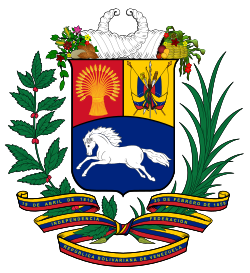| Venezuelan Citizenship Act | |
|---|---|
 | |
| Parliament of Venezuela | |
| |
| Enacted by | Government of Venezuela |
| Status: Current legislation | |
 |
|---|
Venezuelan nationality law is the law governing the acquisition, transmission and loss of Venezuelan citizenship. It is based on the principle of jus soli : any person born in Venezuela acquires Venezuelan citizenship at birth, irrespective of nationality or status of parents. Venezuelan nationality law is regulated by Section 1 of Chapter 2 of the Constitution of Venezuela and by the Nationality and Citizenship Act of 2004. [1] [2]